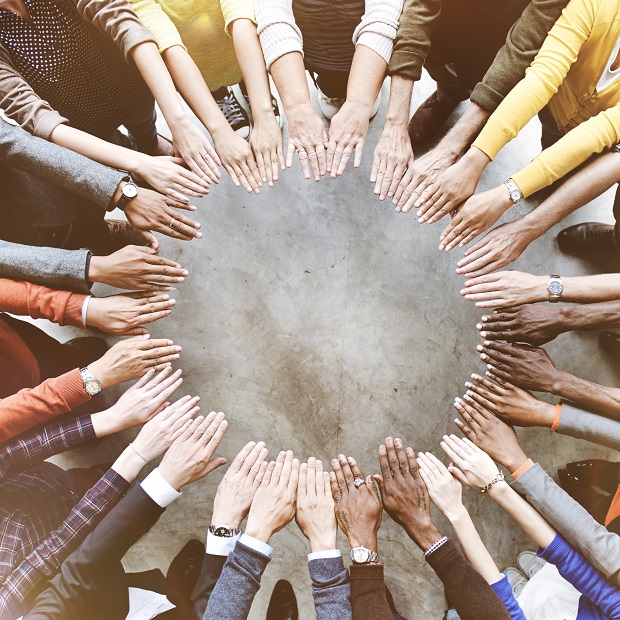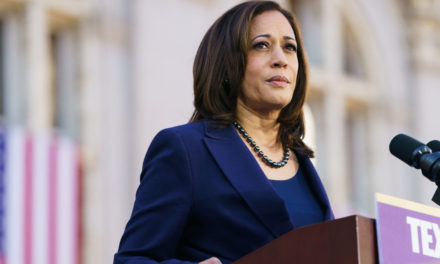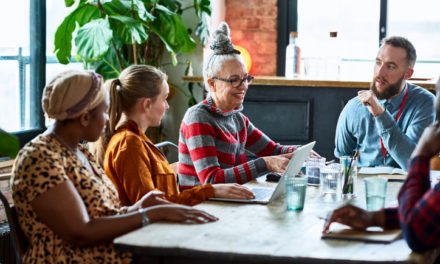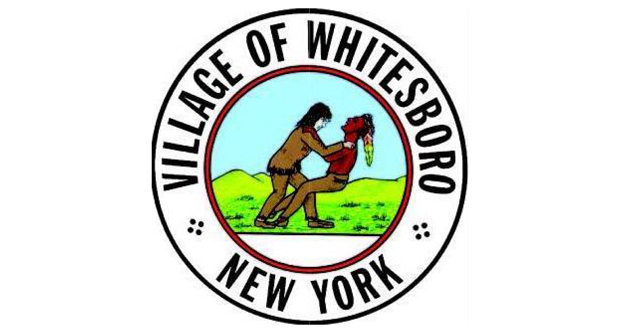
As I got up to leave a meeting the other week, a co-worker happened to glance at the small and slightly fading, but still largely visible sticker I had plastered to my company employee badge. There, the neatly printed characters “ALLY” reflected back at me. “What’s that for?” He asked, pausing to stay behind as other colleagues began to file out of the conference room. “Nickname?” I glanced down and smiled, explaining to my colleague that the sticker was actually apart of a larger campaign with one of our organization’s Employee Resource Groups to identify individuals willing to support and stand up for the rights of other individuals in the workplace (in this case, members of the LGBTQ community). We had a valuable conversation discussing why I became an Ally, what it meant to be an Ally as a non-LGBT person, and why it was important to declare “Allies” in the workplace.
Though I left the conversation feeling good about sharing new resources and potentially opening up the opportunity for further discussion in the future, I couldn’t help but think of how many Allies, in both the LGBTQ and other underrepresented communities are not visible. It can be hard to find an Ally in your workplace, school, or community. Simply put – it is not very likely they will be wearing a sticker.
And while the term “Ally” is well-known and often discussed within the LGTBQ community, as a woman and Person of Color (PoC), I hear far less about this this important role in other communities, even though individuals in these groups could also benefit from the advocacy, engagement, and support of Allies. Recognizing and acknowledging our own privileges enable us to work as Allies towards upheaving biases, prejudices, and patterns of injustice that continue to persist within our society. Allies also help to dismantle stereotypes and provide valuable support to individuals in oppressed groups who may not have the power, status, or opportunity to influence institutional and systemic change. To be an Ally is to be an advocate and catalyst for social change, particularly in the face of our society’s “isms” (sexism, racism, ableism, heterosexism, ageism, classism).
Oftentimes, individuals may not believe they have the tools, resources, or influence to be an Ally. They may fear saying or doing the “wrong thing”, or may feel that they do not have the knowledge needed to contribute meaningfully to a conversation. Being an Ally doesn’t have to mean starting a campaign, kicking off a new initiative, or organizing an event (although these are all great efforts!). It is often through our smallest day-to-day interactions – speaking up for a colleague overlooked in a meeting, listening with empathy, and making an effort to understand others’ experiences – that can make the greatest impact, both personally and across our organizations.
Without wearing a sticker proclaiming your Allydom, the easiest way to begin to be an Ally is to listen. When you take the time to truly hear others and learn from them, people take notice. Developing as an Ally is a skill that doesn’t happen overnight; it comes from engaging in open conversations, asking questions, recognizing your own biases and blindspots, and stepping out of your comfort zone.
Most, if not all, of us have encountered instances in our lives where we have felt like “the other”. Whether that feeling has come on a sports team, at work, with our families or friends, or in another social situation, it has allowed us insight into how individuals in underrepresented and oppressed groups feel during their daily lives. As potential Allies, it is our responsibility to use these experiences to shape our thoughts, words, and ultimately actions.
To empower others, we must first empower ourselves to be brave in our interactions, conversations, and actions. This bravery, in turn, translates into a stepping stone for more inclusive and collaborative environments.
How will you be an Ally today?


















